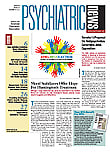The U.S. Supreme Court has agreed to make a definitive ruling on the constitutionality of the Patient Protection and Affordable Care Act’s individual insurance mandate.
To date, four federal appeals courts have handed down rulings on the federal health care reform law, with two upholding the mandatory-coverage provision, one rejecting the mandate, and another dismissing challenges to the law outright.
In June, Judge Boyce Martin Jr. of the U.S. Court of Appeals for the 6th Circuit asserted in the court’s majority opinion that the provision is “a valid exercise of Congress’ authority under the Commerce Clause” (Psychiatric News, August 5).
Two months later, the 11th Circuit ruled against the law, with Chief Judge Joel Dubina arguing that the mandate “represents. . . the ability to compel Americans to purchase an expensive health insurance product they have elected not to buy” (Psychiatric News, September 2). But despite the court’s rejection of the minimum-coverage provision, Dubina and Circuit Judge Frank Hull ruled that the rest of the law is acceptable as written.
In September, the 4th Circuit ruled that two separate challenges to the Affordable Care Act lacked merit for consideration (Psychiatric News, October 7). The court’s acceptance of the commonwealth of Virginia’s right to appeal would establish a precedent by which “each state could become a roving constitutional watch-dog of sorts,” wrote Circuit Judge Diana Gribbon Motz in rejecting Virginia’s legal challenge.
In her opinion in the second suit brought before the 4th Circuit, Motz contended that the court lacked jurisdictional authority under the federal Anti-Injunction Act (AIA) to hear the case, as any penalties collected by the federal government for failure to comply with the mandate would be considered taxes.
In early November, less than a week before the Supreme Court’s announcement, the D.C. Court of Appeals became the second federal appeals court to rule in favor of the constitutionality of the health care reform law. “The right to be free from federal regulation is not absolute,” wrote Senior Circuit Judge Laurence Silberman in the court’s majority opinion.
The Supreme Court will hear appeals in three cases related to the 11th Circuit’s ruling—Department of Health and Human Services v. Florida, et al.; Florida, et al. v. Department of Health and Human Services; and National Federation of Independent Business v. Sebelius.
In addition to determining the constitutionality of the minimum coverage provision, the Supreme Court will rule on whether the mandate can be severed from the remainder of the law. The high court will also consider the AIA-related issue raised by the 4th Circuit. Lastly, the court will address the question of whether Congress has a right to legislate the withholding of federal Medicaid funding if states fail to expand their coverage under the law.
The court has set aside five and a half hours for oral arguments in the case, which the
New York Times said are expected to be heard by March. A decision will likely be made in late June, according to the paper.


